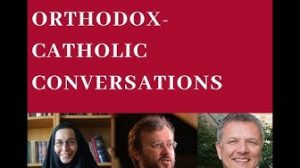Christ is born!
This week vigil light is offered by the Godenciuc family in memory of Mychajlo Mandziak.
Dear Parishioners: If you would like to have Confession or Holy Communion please call the rectory at (203)865-0388.
SOROKOUSTY will be celebrated on All Souls’ Saturdays, February 6th, February 27th , March 6th, March 13th, and May 22nd . Please take your book found in the entrance of the church, fill it out, place it in envelope, and drop it in the collection basket. If you need a new book, ask Father Iura.
Dear Parishioners please close your phones during the Divine Liturgy. Your phones make our stream live difficult. Thank you!
We have frozen cabbage with sausage (kapusta & kovbasa) or only cabbage for sale in the church hall.
Every Sunday you can watch the Divine Liturgy streamed live on parish Facebook page at 9:00 Divine Liturgy in English and again at 10:30 in Ukrainian language.
Facebook: https://www.facebook.com/stmichaelnewhaven.
Dear Parishioners: I wish to express a special thanks to all of you. Despite the restrictions placed on your attendance at Divine Liturgy and the various special Liturgical celebrations, your attendance via Facebook, your responses, your thoughts and prayers, your support for parishioners in need as well as the continued financial support that you have mailed in to the Parish is greatly appreciated. Together with the help of God we will survive this National crisis and come out of it stronger than ever spiritually and emotionally. May God bless you all. Fr. Iura Godenciuc
 Here is a very interesting and important conversation among the Orthodox and Eastern Catholics. I’d also include in my descriptors is beautiful. This particular presentation is the first of the Huffington Ecumenical Institute online lecture series addressing issues, obstacles, and ways forward in Orthodox-Catholic relations.
Here is a very interesting and important conversation among the Orthodox and Eastern Catholics. I’d also include in my descriptors is beautiful. This particular presentation is the first of the Huffington Ecumenical Institute online lecture series addressing issues, obstacles, and ways forward in Orthodox-Catholic relations. PHILIP’S FAST (PYLYPIVKA) PASTORAL OF THE UKRAINIAN CATHOLIC HIERARCHY OF THE U.S.A. TO OUR CLERGY, HIEROMONKS AND BROTHERS, RELIGIOUS SISTERS, SEMINARIANS AND BELOVED FAITHFUL,
PHILIP’S FAST (PYLYPIVKA) PASTORAL OF THE UKRAINIAN CATHOLIC HIERARCHY OF THE U.S.A. TO OUR CLERGY, HIEROMONKS AND BROTHERS, RELIGIOUS SISTERS, SEMINARIANS AND BELOVED FAITHFUL,